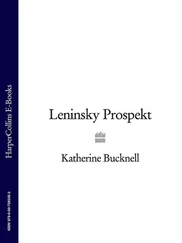Generations were born and died in that bed, Hilary thought. She saw them in pairs, producing a life, producing a death. In her mind’s eye, she only approximated the bodies, generic, strangely innocent, dressed in white like Gwen in her nightgown; what did Hilary know of their intimacy, in fact? She revered the idea of it. She pictured Lawrence and Gwen together throughout time, their hands folded on their breasts, not touching at all. Like figures carved in stone on a funeral monument. You could sleep for ever in that bed, she thought.
She had slept there herself during half of July and most of August when Gwen took Will to the cottage for the summer air and offered Hilary a vacation from the service flat. There had been a string of mornings so bright that Hilary had relished being called to them early by the birds. Relished dozing and dreaming in the half-light before dawn, under the pleasing shroud of Gwen’s stiffly laundered cotton sheets, slightly abrasive with London lime on the naked skin. How lucky, how certain, how easy I felt in that bed. Before all this mess.
Hilary longed for sleep now, for oblivion. But her mind raced on. I could get to hate Gwen, she thought. Both of them. It might seem easy to tell myself I don’t want what they have. But for whose benefit, that lie? The spinster’s bitter defiance, life at arm’s length. It’s a marriage I admire, and it’s their marriage. No way I can stay here more than a day or two. I have to tell her. Tomorrow – right away. Ask her to lend me money for one more ticket. Save what’s left of the credit cards.
Trouble with goddamned fucking New York is everybody’s apartments are so small. In London people have things like extra beds. She ran over in her mind the friends who might have room for her to stay, thinking how they were really Mark’s friends more than hers, how they might have an opinion, either hate her guts or try to talk her around, and how she wouldn’t be able to bear the interference. One or two from graduate school she could maybe impose on, her old PhD supervisor, for instance, who still treated her as though the world needed the thesis she had never finished writing. She pictured herself telling the whole sorry tale again on the phone to New York, and her stomach toiled with embarrassment.
Could Mark really kick her off the project? She’d been agonising over it, telling herself she was too tired to think straight. Eddie wouldn’t leave me so exposed. Eddie, whose last years had been haunted by the future, by planning, eventualities. And then with a shuddering ache, Get real, Hilary. Eddie was never planning with you in mind. He wouldn’t leave his collection so exposed.
But it was hard to give up that fragile old-man voice in her ear, croaky, desiccated, the Bronx twang made fine by education and a certain natural delicacy: ‘How can you be so sure you want to give your life to this when I’m gone? And the lockstep with Mark? Maybe I should set you free from that? There’s always some other way, you know, with lawyers.’
How many times should Eddie have asked her? She had been so quick to reassure him, It’s decided. I’m all yours. As if she herself were a piece he wanted for the collection. Because she knew his appetite, and it gave her so much pleasure to satisfy it. And because in his growing frailty, he was facing something so big, drawing closer all the time, and she could shield him a little with this indulgence; she could take his mind off his fear. The legal stuff ’s fine. Mark’s good at that. Let him deal with it, she used to say.
I left my self exposed, she thought. I had – a sense of expectation; she had to admit it.
After the funeral, Hilary wondered how much she really cared for the treasures. All those years, had she been living off Eddie’s enthusiasm? Until it all came to life again with Paul. Paul loved the collection with that unhesitating lightness of heart, that spontaneous certainty that she had come to feel she would never encounter again. The touch of boyish disregard that carried it off.
That was real, she thought, that part of my friendship with Paul. It was the same as with Eddie – we shared some things perfectly, others not at all.
At last she began to sink into sleep, feeling justified in something. She let go of trying to make sense; let the pieces of her puzzle fall apart into their jigsaw fragments. She drifted among bodies, among beds. Gwen, Lawrence. Eddie lying alone under his grand red canopy, lost in the magnificence of its height and hangings. Slipping away. Eddie in his wheelchair in the big living room. In the sunlight beside her desk. Safely dead at last; the silent move he made, out of reach.
I only slept with Mark’s body, she thought without clarity. It felt like something she needed to explain. But not now, under the weight of the thin blanket, carrying her down. Don’t try.
Then she had a sensation of hurt. A jolt, as if the pillow had dropped underneath her, the whole bed. There was a shuddering black edge around her thoughts as she was thrown back from sleep for an instant.
I knew Eddie was selfish. I made it easy for him. She tried to push past this discomfort, her sense of error and responsibility, still reaching for sleep. I have to go forward from where I am now. With what I know now. I can get back in touch with Paul, on a new footing. He’ll help me. It’s OK here with Gwen until I get myself together.
She was sure of Gwen. At least there’s room for me here. With Lawrence and Gwen.
CHAPTER 3
It seemed obvious to Gwen whom Hilary should meet. Roland was tall enough, smart enough, steady enough, good enough. Did it matter whether he was handsome? Walking along King Street the next morning after dropping Will at school, she decided that handsome wasn’t really the point. Up until now anyway, Gwen had never much judged people by how they looked. But he’s got a great face, she reflected. Solid, intriguing. A lot of texture to his skin, a real beard and a head of thick, dark hair, a kind of masculinity and force. Maybe she had never before considered Roland on the question of looks. Did she know him too well? When had she first looked at him? When had she ever looked at him? Six or eight years ago?
He had been introduced by Lawrence as an Ancient History colleague; one of the few colleagues who seemed to Gwen to be actually alive. So many of those Oxford types, Gwen thought, as she made her way towards a cash machine through the sparse, early scurry, existed only as their academic selves – a constellation of starred alphas, named memorial prizes, Oxford University Press publications, sherry-stained gowns, high-table ripostes. But she had liked Roland right away. At one of those wistful gatherings in a barnlike room, everyone standing because the chairs were so far apart, so stiff-backed and so sunken-seated, a hot little drink in the fist. He had made jokes and asked her direct, friendly questions about herself, real questions, that sought out what was inside her, not the windy senior-common-room cross-examinations that aimed to position you on an imaginary list and then dismiss you as falling below some necessary level of academic accomplishment on that list. What are you working on? they felt free to ask once they had established that she didn’t spend all her time looking after children, a house. Years ago, it had been her undergraduate degree in Greats. Then, when she gave up on that, she would answer, I paint. And it seemed to stump them. Hmm, they might reply, with a slight interrogative inflection, nodding vigorously, stretching the brows upward in a contortion of sympathy, optimism, goodwill. Some would venture on to a further question, What sort of things do you paint? Or even the informed probe, Figurative or abstract? But there the conversation would end. They couldn’t taxonomise this particular activity, landscape painting. It was easier to look upon her as a dropout.
Читать дальше












